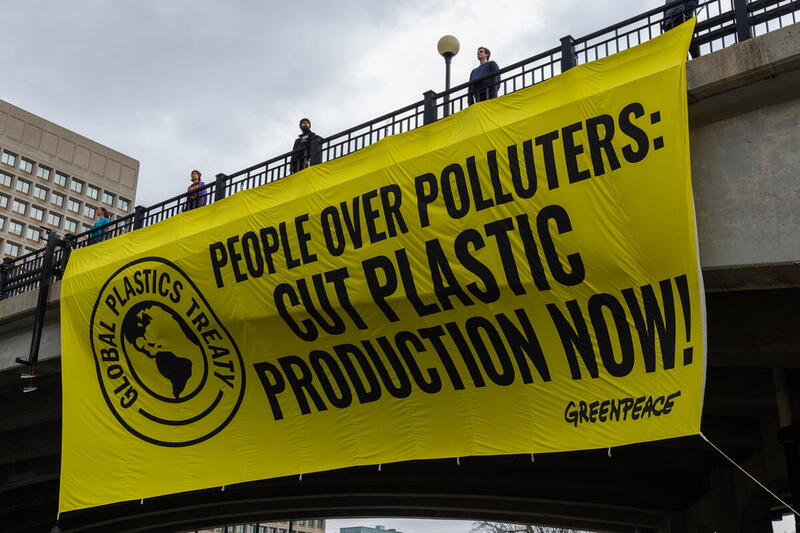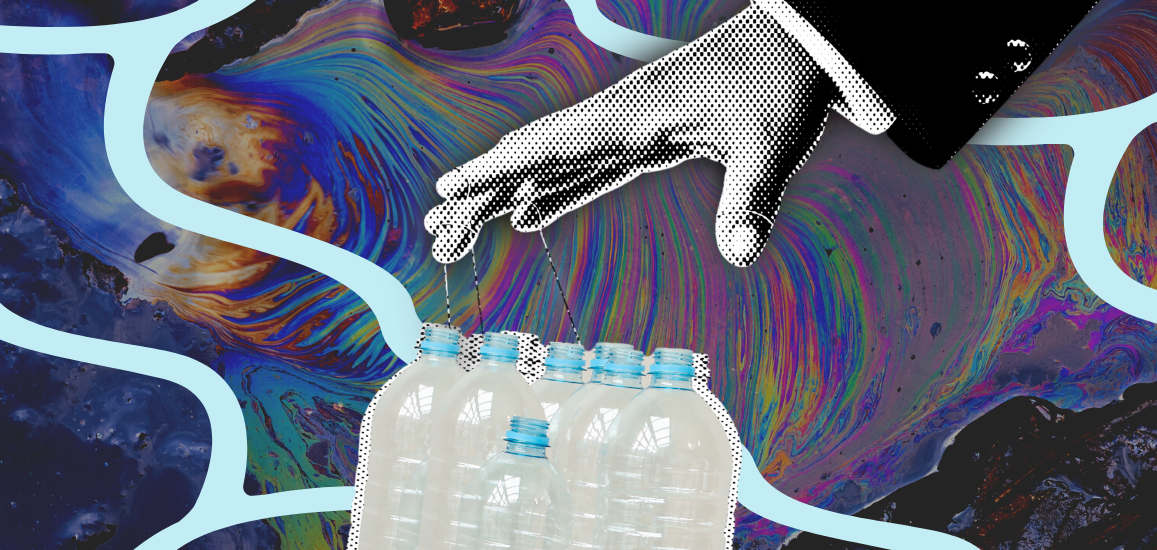January 11, 2019 (MONTREAL) – Plastic trash from Canadian companies such as Sobeys and Saputo were identified in the mountains of trash found in unregulated sites in Malaysia, revealing an alarming plastic waste export trend following China’s ban on plastic waste imports last January. According to research commissioned by Greenpeace Canada and an on the ground investigation conducted by Greenpeace Malaysia [1], Southeast Asian countries became the new major export destinations for plastic ‘recycling’ from Canada, the US and other high-income countries, but have been unable to deal with the onslaught. [2]
“The Canadian government’s failure to take strong action to reduce the country’s plastic footprint means we are dumping our plastic waste on other countries that are already struggling with a plastic crisis of their own,” said Sarah King, Head of Greenpeace Canada’s Oceans & Plastics Campaign. “As Canadians, we work to separate our waste into recyclables and non-recyclables, trusting that it will be recycled in a sustainable manner. Unfortunately, much of it is being burned, landfilled and even rotting in other countries causing environmental and health problems. Canada must take a hard look at its overproduction, consumption and pollution of single-use plastic and the toll it is taking at home and abroad.”
Greenpeace Canada’s commissioned research found that in 2015 nearly half of Canada’s plastic waste exports were sent to China. Following the ban, exports to China dropped to 4%, while waste plastics to countries other than China and the US more than doubled, with Malaysia and Thailand becoming the two biggest new markets. [3] While these countries have since put import restrictions in place [4], Greenpeace’s investigation in Malaysia found that much of the plastic waste has ended up in illegal or unregulated facilities, dumpsites and landfills, or has been burned in the open air, and not recycled. [5] Burning plastic waste poses a significant health risk to nearby communities, with some residents already complaining of respiratory illnesses allegedly caused by the haze and pollution coming from open air burning.
Ongoing research commissioned by Greenpeace Canada into Canadian plastic waste production suggests that Canada continues to struggle to deal with the country’s significant plastic footprint, with reports of an increasing amount of plastic diverted for recycling being stockpiled, burned or sent to landfill. [6] Though recycling rates vary from town to town, and across provinces, on average only 10-12% of Canada’s plastic waste is actually recycled.
“The recent federal government’s Zero Plastic Waste Strategy missed the boat and perpetuates the recycling myth. Meanwhile, as corporate giants continue to push mass production and consumption of single-use products, mountains of recycled trash pile up in Canada and around the world. It is clear that we will never recycle our way out of this plastics epidemic. Corporations and governments have to get serious about reduction by ceasing production and distribution of the most problematic and unnecessary single-use plastics and moving toward a new system for product delivery that is better for our communities, environment and health ,” King concluded.
Greenpeace is calling on major corporations that market and distribute single-use plastics, including Canada’s major retailers and companies such as Nestle and Tim Hortons, to stop fueling the plastic waste and pollution crisis by committing to reduce their reliance on single-use plastics and seek alternative, more sustainable delivery models.
-30-
Greenpeace Malaysia’s “The Recycling Myth” report can be found here.
Images from Greenpeace Malaysia’s report can be accessed here
A Media Briefing on Canada’s Plastic Waste Export Trends Following China’s Import Ban can be found here.
Notes
[1] Greenpeace Malaysia’s “The Recycling Myth” report can be found here: https://www.greenpeace.org/seasia/Press-Centre/publications/THE-RECYCLING-MYTH/
[3] Media Briefing on Canada’s Plastic Waste Export Trends Following China’s Import Ban : https://www.greenpeace.org/canada/en/qa/6971/media-briefing-canadas-plastic-waste-export-trends-following-chinas-import-ban/
[4]https://www.thestar.com.my/news/nation/2018/10/17/govt-to-ban-import-of-all-nonrecyclable-waste/
[5] Greenpeace found branded plastic trash from Canada in Jenjarom, Kuala Langat, an unregulated facility where community members reported illegal plastic waste dumping and burning activities to be having negative impacts.
[6] https://www.cbc.ca/news/technology/garbage-recycling-china-plastics-canada-1.4586602
For more information, please contact:
Philippa Duchastel de Montrouge, Communications Officer, Greenpeace Canada, [email protected], +1 (514) 929-8227



Discussion
that is so sad :r